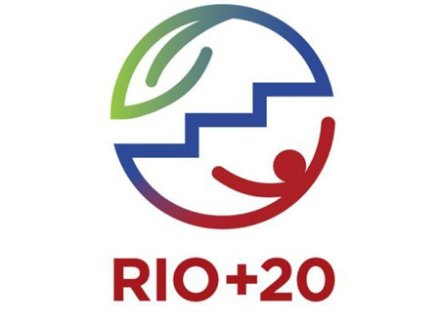Point of No Return
By Mariana Calderon
Sitting back in a bed in a hostel in Rio de Janeiro, trying to regain some sense of normalcy through regular sleep and regular meals, I hardly dare to think back on the last two weeks – or the last 20 years – just yet. Some time to recover, please.
Unfortunately, time is something we don’t have much of anymore. In the halls of the Rio Centro convention center, the atmosphere differed depending on the crowd: While frustration abounded, the sense of urgency you might expect from such a reputedly important moment in history was lacking in many rooms. It seemed as though few participants had any real grasp of the situation; in negotiating rooms, delegates showed little of the ambition necessary to address as huge an issue as sustainable development. Compared to other meetings, such as those for the UNFCCC, the theatrical dramatics were missing. It is a strange way to put it, but while at the climate COPs, negotiators are constantly bombarded with the responsibility to save humanity and the earth before time runs out, here in Rio the feeling of momentous occasion was lackluster, enough that media were starving for interesting shots and swarmed around children at the conference center (our future!). Negotiations felt staged, simply a ritual which representatives had to go through to show that they had tried – and the more governments insist on holding ritualistic meetings without real substance, the faster we run out of time.
Perhaps I am being unfair. Certainly, there were States championing the rights to water and food (even as others strove to weaken or eliminate them) or fighting against a “green economy” that would commodify and privatize nature as well as human life, but I am pondering the long term effects of this gathering and all those before. Why didn’t this conference, and the many preparatory meetings that came before, or the last twenty years work?
If I’m going to be completely fair, one answer is that sustainable development is huge. It could be called The Next Big Thing. After all, it should be all-encompassing. It needs to mention climate change, and biodiversity. It must address poverty eradication, how to bring it about, and how to do so while protecting the environment and traditional ways of life. It has to guarantee basic human rights for all. It needs to fix our economy and create a framework under which all of this will be done. It also should address the various issues we care about, including gender and reproductive rights, youth unemployment, the use of science, protecting oceans and forests, and just about everything else that we, as humans within and as part of our environment, have to interact with and decided to throw into the mix. Therein lies our problem. Sustainable development is the Next Big Thing that no one really knows how to deal with. It is an issue that no one person could possibly begin to fully comprehend – sustainable development deals with everything. True sustainable development, a kind that would acknowledge, respect, and take into account social, economic, and environmental issues as part of a larger whole, is an ideal.
So it’s really no surprise that it hasn’t worked so far. After all, when you’re talking about everything, a two-page inspirational statement would be next to useless. A cumbersome 49-page document could be more useful, but no one wants to look at it, and anyways, 234 paragraphs still isn’t everything. There was no sense of urgency because no one would know where to go with it. So why the meetings? Why the thousands of flights to Rio de Janeiro, dozens of shuttle buses, and “recycled material” installation artwork full of styrofoam? I can’t answer to the styrofoam and plastic bottle art on Copacabana, but I do still see a point to these meetings. They could work, but first, the people need to get angry. Angrier.
Sustainable development may be huge, but collectively, we understand what needs to be done. I’m not talking about negotiators understanding, or Heads of State, but everyone else. The solutions are right in front of us, and civil society can see them. Some things, like affordable renewable energy, need to be ironed out. Figuring out how to feed the world without relying on genetically modified organisms and monocultures is difficult. Conserving biodiversity when developing countries need the natural resources is complicated. But we know enough to start. In fact, we know enough that we could get a running start, punctuated by leaps and bounds. It could be done, but only with a united effort. This is where we run into problems. For the most part, the way in which we currently try to collectively address global issues would involve governments taking lead. Clearly, this is not working well. So the question we must ask is why? Why are our governments not taking lead?
We have one huge problem: Our governments no longer represent us. They no longer (if they ever did) have our best interests at heart. If millions are hungry, forests are being razed, and the oceans are being emptied, and we know that it is possible to change all this, shouldn’t it be done? Yes, it would be difficult – incomprehensibly difficult – but, if there is to be a focus on human well-being by governments (the rights of nature non-withstanding, we know most governments hardly like to hear about inherent values to biodiversity), then our governmental bodies should be working harder to listen to our solutions and put them into play. They are not.
This is where we get angry. What do governments do at these meetings? Many come into the game full of empty promises and empty pockets – they left all their accountability behind when they started to put the interests of large corporations before the interests of people. Money shouts loudest. It’s that simple. I may be biased. After all, supposedly, the US government is representing me. In the halls of the UN, I am often ashamed of this. The US government has consistently tried to take the right to food out of the text. I have the right to be furious. But are other governments any better? In small ways, perhaps. But small ways do little when what is needed is larger collaboration. Small gains in the text – on human rights for example, are more symbolic than practical when there is no one to read all 234 paragraphs of text and check on governments to see if they are adhering to them. And governments won’t adhere to them. Not completely. Some countries simply can’t, just yet, and those who can often resist assisting them.
But I should come back to the anger. We have to be angry. The reason is this: Sustainable development is an ideal. Multilateralism is an optimistic sort of idea. It seems like we’re striving for utopian perfection; it’s so utterly far away. But, the more we strive to reach it, the further we’ll get. And with millions dying of something so simple as hunger, we have to reach as far and long as we can. We won’t get there with optimism or defeatism, practicalism, or realism. To get there, with governments who don’t represent us, and who are stubbornly stuck on the modern world as it stands, we need anger.
The reason we couldn’t hope to achieve sustainable development right now is because most people, most governments, are looking at it as a way to alter our current system. We’ll make our billions of cars green with biofuel, drink fair trade coffee from a continent away, buy reusable plastic tote bags for our groceries, and this will work just fine, we say. But we know better. The system isn’t working. Sustainable development will never fit in, neatly, or otherwise. The shift must be bigger. It has to be huge. The world has to change, and to do so, we must change who our governments listen to and work for: Not for big corporations – they work for us, and we have to remind them. We’ve been trying to do it nicely for a while. Some have given up on being “environmentalists,” forsaking the world of environmental policy and multilateral agreements for local and grassroots efforts centered on changing communities. This is necessary as well – change has to come in two directions, which is why I still place value on multilateralism.
For practicality’s sake, the United Nations makes sense. The issues the world faces are global, and global discussions and action are needed to address them. There is an institution available, ready to facilitate that. It is a resource, and should be used. If this multilateralism isn’t working, it is because UN meetings are driven by those who drive the negotiators. Negotiators are driven by their government offices. Those governments are too often, and increasingly, driven by corporations and big polluters. To get the shift we want, we must drive the governments ourselves. It’s that simple. But first, we have to make them listen. There must be action outside of the UN, as well as inside. I will continue to work from the inside even as others work from the bottom up. I am privileged enough to have some sort of voice inside negotiations. I’m going to use it to make delegates, negotiators, and representatives look twice at the large groups in their complexes denouncing their false work. We can show them that we have solutions, and can come to them in a truly consensus-based way. We can provide the ideas and values, and the words to frame them, that they are too cowardly to put into writing themselves. They will leave with that uncertainty hidden in the back of their minds, and then they will go home, patting themselves on the back, and they need to find movement back home as well. We’re at a point of no return. We have to be angry enough to be loud enough to show our governments that 1) They need to put our interests before those of polluters, and 2) That if they don’t, they will be losing the power we had given them. We will demand a future and take matters into our own hands.




